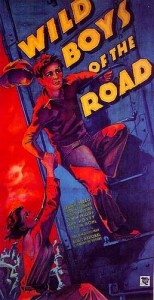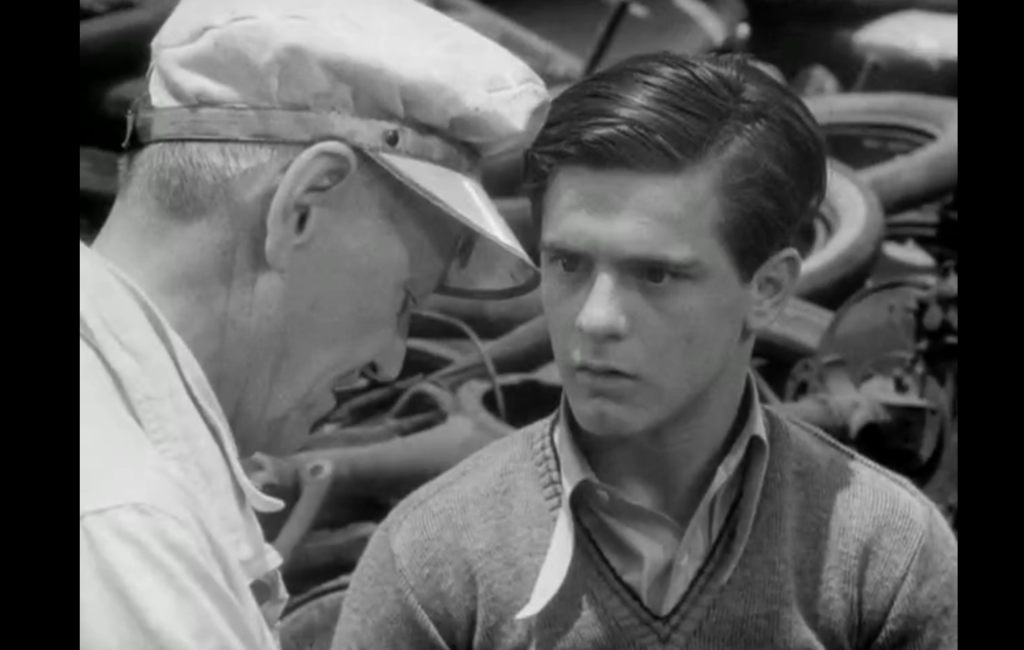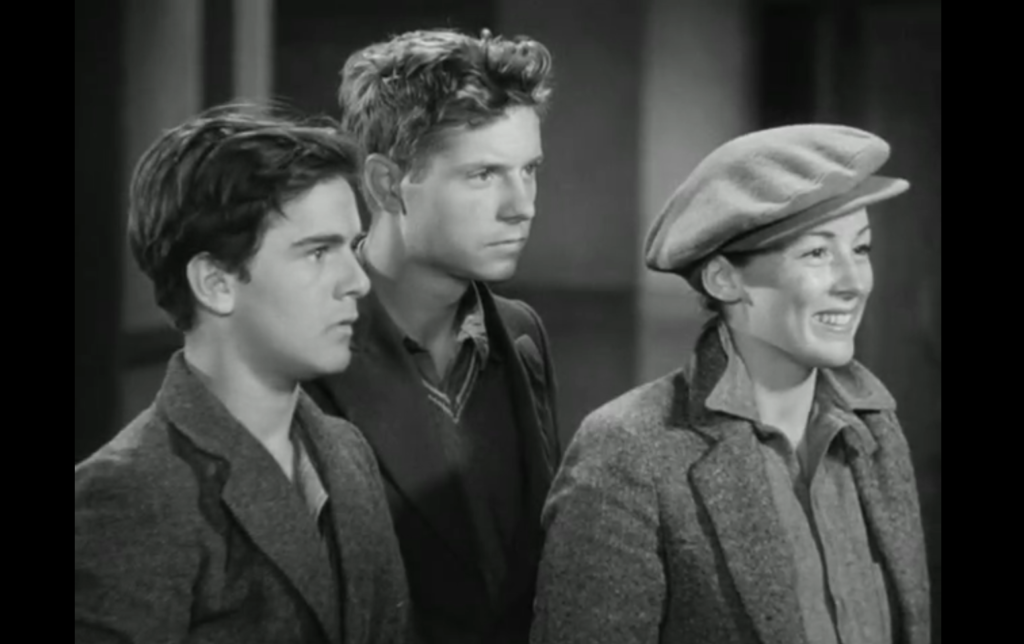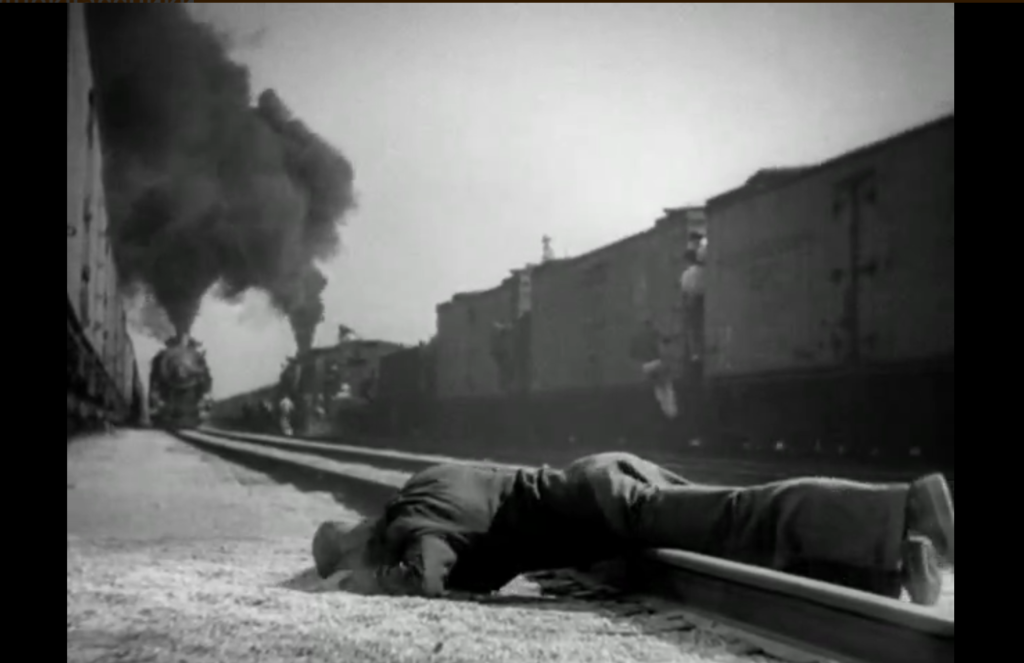“Our folks have got enough worry, without us bringin’ ’em more.”
|

Synopsis:
During the Depression, two teenagers (Frankie Darro and Edwin Phillips) leave home to try to earn their keep — but they quickly learn that jobs are hard to find everywhere, and are soon reduced to panhandling to survive.
|
|
Genres, Themes, Actors, and Directors:
- Depression Era
- Homeless
- Teenagers
- Unemployment
- William Wellman Films
Review:
William Wellman’s hard-hitting social drama pulls no punches in its depiction of unemployment and poverty during the Depression. By using fun-loving teens as his protagonists (the film opens up with a high school dance), Wellman shows how even kids from seemingly secure, middle class families were forced to pitch in and help with finances, quickly leaving behind the carefree days of their youth. The cast of unknowns — particularly sparkling, freckle-faced Dorothy Coonan (Wellman’s wife) as a female “hobo” the boys meet up with — are believable and appropriately spunky in their roles; and while the screenplay occasionally turns didactic (particularly during the jarringly unrealistic denouement), it’s hard not to feel outrage and sympathy for these well-meaning protagonists, who want nothing more than to earn an honest, independent living for themselves.
Redeeming Qualities and Moments:
- Pint-sized Frankie Darro as Eddie

- Dorothy Coonan (Wellman’s fourth and final wife) as Sally, a hobo girl

- Many heartbreaking scenes of privation and hardship

- A tough, (mostly) realistic script
Must See?
Yes, as one of the most powerful social dramas to come out of the Depression Era.
Categories
- Historically Relevant
- Important Director
Links:
|
One thought on “Wild Boys of the Road (1933)”
A must, and in almost total agreement with the assessment.
Wellman’s deeply felt drama of the Depression still packs a wallop. His pet theme of camaraderie comes to the forefront and this time is infectious, as the strong friendship among the leads spreads through those on-the-run with them: solidarity will out.
The director’s fearlessness is most apparent in the action-packed train sequences, thrillingly shot and edited. As well, during one such sequence – though it’s not called this – a rape occurs, and is handled somewhat subtly but rather realistically for the time.
I don’t know that I agree re: the denouement. We did come out of the Depression eventually, and I think that’s all the end sets out to establish.
This is heart-tugging stuff, and a document of a time best remembered. And the three leads are perfect. Darro occasionally reminded me of a very young De Niro. Coonan has just the right amount of tomboy pride and is otherwise charming. I did think it odd that the very-winning Phillips was complaining so much about his girlfriend wanting to kiss him all the time; good thing it was soon apparent that he was very concerned about his mother (cause I was getting a little confused about his sexuality – and I knew there was no way it could be THAT kind of story!).